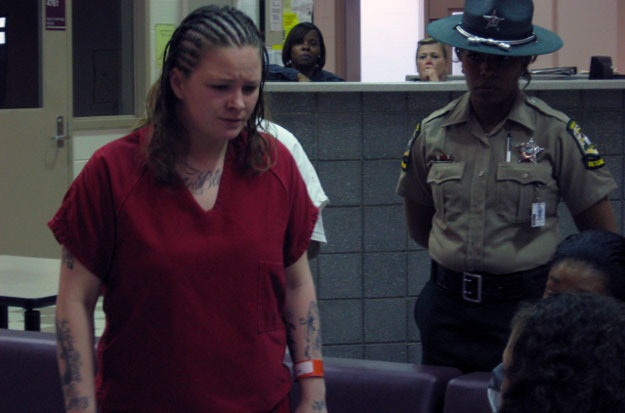

Referrals to the Scared Straight program come from the Raleigh County Juvenile Probation Office, the Department of Health and Human Resources through Youth Services, and guidance counselors from schools. The key is to screen out children who are not a good fit for the regimen, Kirkpatrick said, as the program is sometimes used as a last-ditch effort to treat a juvenile who hasn't responded to other traditional methods. He said the program is not for the faint of heart, and is best suited for older juveniles "who stand on the treacherous precipice, where the prospect of a life of crime awaits." "Kudos must go to the authorities at the Southern Regional Jail, who work to make this program function efficiently and safely," Kirkpatrick said. Now, Raleigh County Sheriff's Deputy Bobby Stump hopes to take over where Cooper left off, and to administer the project for the benefit of local youth. Scared Straight was established in Raleigh County in 2012, by Twila Cooper, who served as its director and administrator until recently, when she relocated to Cincinnati to take care of family members. "However, I believe that the project can be very useful as long as care is taken to ensure that the right kids are accepted into the program." "Scared Straight is controversial because recent studies show that it achieves only mixed results as a deterrence factor," Judge Kirkpatrick said. as a means of deterring juvenile crime by taking selected juveniles to an adult jail, where youth experience the harsh realities of prison life. Scared Straight programs, established in the 1970s, are used throughout the U.S. But in an email to the newspaper, he criticized the academic studies of Scared Straight programs, saying that none followed the same youths over any significant period of time.BECKLEY, W. “There is no evidence that shows it works, actually quite the contrary.”Īrnold Shapiro, the retired television producer who created the 1978 documentary “Scared Straight!” and, later, “Beyond Scared Straight,” would not grant the Observer’s request for an interview. “Often young people that have come in contact with the justice system have experienced multiple previous traumas and when we put folks into situations where we are trying to frighten them into doing what we think they should be doing, that exposes them to further trauma,” Smoot said. Naomi Smoot, executive director at the Coalition for Juvenile Justice, said prison awareness programs could cause further trauma for at-risk children.
/cloudfront-us-east-1.images.arcpublishing.com/gray/AYJ554XPQ5HJPPGT7NVHAH2G7Q.png)
He said that for children as young as 8, such programs amount to “mental brutality, mental abuse.” James Finckenauer, a professor emeritus at Rutgers University’s School of Criminal Justice, has for years studied prison awareness programs. “It could really set someone back,” said Frank, who has written books on psychological problems in children.


 0 kommentar(er)
0 kommentar(er)
